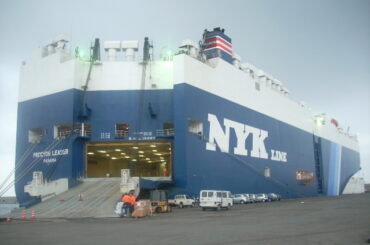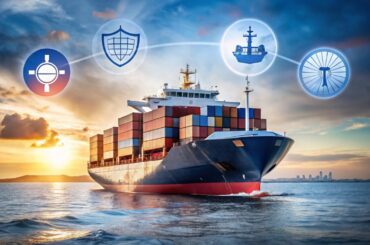If you’ve ever wondered about the intricate legal mechanisms that govern maritime transactions, understanding what a maritime lien entails is essential. This unique legal concept provides a fascinating insight into how creditors can secure their interests in the unpredictable domain of maritime commerce. By delving into the nuances of maritime liens, you’ll uncover a world where the seas meet the law, shaping the foundation of international trade.
Definition of Maritime Lien
When considering the definition of a maritime lien, it’s essential to understand that it represents a legal claim against a vessel or its cargo for services rendered or damages caused in the maritime industry.
Maritime liens have a deep-rooted history dating back centuries, where they were established to protect those providing goods or services to vessels. These liens are considered privileged claims, meaning they take precedence over other claims against the vessel or cargo.
In terms of lien legalities, maritime liens are unique in that they attach to the vessel itself, rather than the owner. This means that even if a vessel changes ownership, the lien remains attached to the vessel.
The maritime lien provides security to those who’ve provided necessaries to a vessel, ensuring that they’ve a means of recourse if payment isn’t received. Understanding the intricacies of maritime lien history and legalities is vital for those operating within the maritime industry.
Types of Maritime Liens
Maritime liens can be categorized into different types based on the specific circumstances that lead to their creation.
Ship mortgages are a common type of maritime lien that arises when a vessel owner uses the ship as collateral for a loan. This type of lien gives the lender a security interest in the vessel, allowing them to claim the ship if the owner defaults on the loan.
Salvage rights also create a maritime lien when a person provides voluntary and successful services to a vessel in distress. These services could include towing a ship to safety, preventing environmental damage, or rescuing crew members. In return for these salvage operations, the salvor gains a maritime lien on the vessel, entitling them to compensation for their efforts.
Understanding the types of maritime liens is essential for vessel owners, lenders, salvors, and other parties involved in maritime activities. Each type of lien has specific rights and implications, impacting how maritime transactions are conducted and resolved.
Creation of Maritime Liens
To establish a maritime lien, a specific set of criteria must be met, aligning with admiralty law principles.
The creation process of maritime liens involves certain key steps. First, the lien arises automatically by operation of law when maritime services are provided, such as repairs, supplies, or salvage, to a vessel. This means that the person or entity providing these services gains a right to a maritime lien on the vessel.
Additionally, maritime liens can also arise from maritime torts, such as collisions or injuries, where the injured party may have a claim against the vessel involved.
Understanding these lien rights is vital in the maritime industry, as they grant priority in the event of vessel arrests or bankruptcy proceedings.
It’s essential to adhere to the specific requirements and procedures for creating maritime liens to guarantee the enforcement and protection of these rights in the complex domain of admiralty law.
Priority of Maritime Liens
Establishing the priority of maritime liens is vital in determining the order in which claims against a vessel will be satisfied. In a historical context, maritime liens have long been recognized as a significant element of maritime law, guaranteeing that those providing goods or services to a vessel are protected in case of non-payment.
The legal framework governing the priority of maritime liens is structured to guarantee fairness and efficiency in resolving competing claims.
The priority of maritime liens is generally determined by the time of attachment. In most jurisdictions, the “first in time, first in right” principle applies, meaning that the earliest established maritime lien will have the highest priority.
However, there are exceptions to this rule, such as preferred maritime liens for claims like wages of seamen or salvage operations. Additionally, the ranking of maritime liens may be influenced by specific statutes or international conventions.
Understanding the priority of maritime liens is vital for all parties involved in maritime transactions, as it directly impacts the likelihood of full payment in cases of vessel arrest or other legal proceedings.
Enforcement of Maritime Liens
Enforcing maritime liens is a critical aspect of protecting interests in vessel-related transactions. When it comes to lien enforcement, there are specific legal procedures that must be followed to guarantee the rights of all parties involved.
Here are some key points to take into account:
- Notification: The first step in enforcing a maritime lien is providing proper notification to all relevant parties. This includes notifying the vessel owner, any potential buyers, and other creditors who may have an interest in the vessel.
- Filing a Lawsuit: In cases where the debt secured by the maritime lien isn’t satisfied voluntarily, the next step is often to file a lawsuit. This legal action is essential to formally establish and enforce the lien against the vessel.
- Judicial Sale: If all other attempts to enforce the maritime lien fail, the final resort is often a judicial sale of the vessel. This involves the court ordering the sale of the vessel to satisfy the debt secured by the lien, guaranteeing that the creditor receives the payment owed.
Implications of Maritime Liens
When considering maritime liens, it’s imperative to understand the far-reaching implications they carry in vessel-related transactions. Maritime liens have significant legal consequences, as they provide security interests in a vessel, allowing creditors to have priority over other claimants in the event of a dispute.
These liens date back to ancient maritime laws, where vessel owners were held accountable for debts incurred by their ships. In the historical context, maritime liens were essential for guaranteeing that vessel-related transactions were conducted with integrity and accountability.
The implications of maritime liens extend beyond just financial interests; they also play an important role in maintaining the stability and reliability of maritime commerce. By establishing a legal framework that protects creditors and guarantees the proper settlement of debts, maritime liens contribute to the overall trust and efficiency in vessel-related transactions.
Understanding the historical development and legal significance of maritime liens is essential for all parties involved in maritime activities to navigate these transactions smoothly and securely.
Frequently Asked Questions
Can a Maritime Lien Be Transferred to Another Vessel?
Yes, a maritime lien can typically be transferred to another vessel owned by the same entity if the original vessel is sold. This process guarantees the lien’s continuity, attaching it to the new vessel.
Are There Time Limits for Filing a Maritime Lien?
When filing a maritime lien, guarantee to meet time limits set by law. The lien duration varies based on factors like type of claim. Understanding the filing process is essential to securing your rights effectively.
What Happens to a Maritime Lien if the Vessel Is Sold?
When a vessel is sold, the maritime lien typically remains attached to the vessel. The new owner assumes responsibility for the lien. Lien enforcement procedures can be initiated against the vessel’s ownership to satisfy the debt.
Can a Maritime Lien Be Enforced Against a Vessel Owner?
When enforcing a maritime lien against a vessel owner, the process involves legal action, potential arrest of the vessel, and sale to satisfy the debt. Understanding enforcement procedures is essential to protect your rights as a lienholder in vessel ownership disputes.
Do Maritime Liens Apply to Recreational Boats?
When it comes to recreational boat ownership, maritime liens can indeed apply. These legal claims can be enforced against recreational vessels for unpaid services or supplies, giving creditors a way to seek payment through the vessel’s value.





